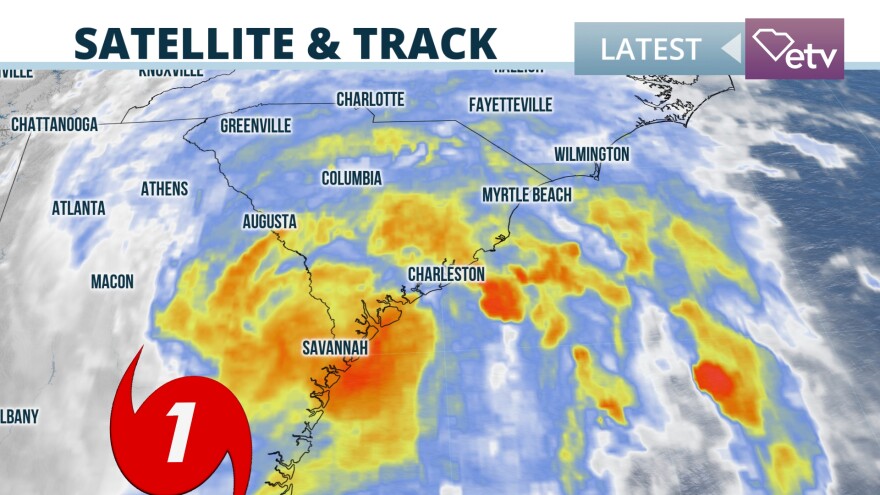Dangers stemming from a tropical cyclone not only exist during the storm, but also after it passes. Idalia will move into South Carolina’s Lowcountry this evening as a weakening Category 1 hurricane with sustained winds around 75 mph. A Hurricane Warning has been posted for this area and Tropical Storm Warnings extend far westward towards the Upstate.
It then tracks near the coastline as a tropical storm tonight. The damaging wind threat will mainly be in the warning areas, but most of the state has risks for flooding and isolated tornadoes overnight.
Weather conditions after Hurricane Idalia passes are likely to pose threats to residents in South Carolina communities. Storm surge warnings are in effect for areas south of South Santee River. Residents should prepare for inundations up four feet.
Once officials say it is safe, you are able to return home if you evacuated. Be on high alert for any debris on your way back. Because of high winds, buildings are susceptible to breaking down, even with a small gust.
Only drive if necessary and avoid flooded roads and washed-out bridges. If you must go out, prepare to encounter fallen objects, down power lines and weak structures. Some debris may not be visible and covered by floodwater. Stay away from the area to decrease your risk of injury.
When officials say to do so, inspect your home for damages. Assess and document all structural damage. Do not attempt to look at other areas outside of your community, as debris could be covered and could damage you or your vehicle.
If you lost power, be sure to report the outage if you haven’t done so already. Never run a generator in an enclosed space or indoors. Place it at least 20 feet from the house with the exhaust away from windows and doors. Carbon monoxide poisoning is one of the leading causes of death after storms, according to the National Weather Service.
It is recommended to not use candles for lighting. Instead, use battery-powered flashlights.
Keep track of the latest updates and adhere to the guidance provided by local authorities.


